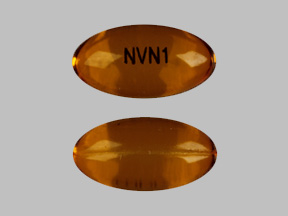Stavzor Interactions
There are 427 drugs known to interact with Stavzor (valproic acid), along with 8 disease interactions, and 1 alcohol/food interaction. Of the total drug interactions, 24 are major, 379 are moderate, and 24 are minor.
- View all 427 medications that may interact with Stavzor
- View Stavzor alcohol/food interactions (1)
- View Stavzor disease interactions (8)
Most frequently checked interactions
View interaction reports for Stavzor (valproic acid) and the medicines listed below.
- Abilify (aripiprazole)
- Abilify Maintena (aripiprazole)
- Abreva (docosanol topical)
- acetaminophen / hydrocodone
- acetaminophen / oxycodone
- Acidophilus (lactobacillus acidophilus)
- Aciphex (rabeprazole)
- Aczone (dapsone topical)
- Advil (ibuprofen)
- albuterol
- Aleve (naproxen)
- Ambien (zolpidem)
- Ambien CR (zolpidem)
- Amitiza (lubiprostone)
- amlodipine
- amoxicillin
- Depakote (divalproex sodium)
- doxepin
- Fish Oil (omega-3 polyunsaturated fatty acids)
- Geodon (ziprasidone)
- levothyroxine
- lithium
- Lyrica (pregabalin)
- omeprazole
- Saphris (asenapine)
- Seroquel XR (quetiapine)
- simvastatin
- trazodone
- Wellbutrin XL (bupropion)
- Zyrtec (cetirizine)
Stavzor alcohol/food interactions
There is 1 alcohol/food interaction with Stavzor (valproic acid).
Stavzor disease interactions
There are 8 disease interactions with Stavzor (valproic acid) which include:
- depression
- liver disease
- urea cycle disorders
- suicidal tendency
- HIV/CMV
- thrombocytopenia
- thyroid function tests
- urine ketone test
More about Stavzor (valproic acid)
- Stavzor consumer information
- Compare alternatives
- Reviews (1)
- Drug images
- Side effects
- Dosage information
- During pregnancy
- FDA approval history
- Drug class: fatty acid derivative anticonvulsants
- Breastfeeding
Related treatment guides
Drug Interaction Classification
| Highly clinically significant. Avoid combinations; the risk of the interaction outweighs the benefit. | |
| Moderately clinically significant. Usually avoid combinations; use it only under special circumstances. | |
| Minimally clinically significant. Minimize risk; assess risk and consider an alternative drug, take steps to circumvent the interaction risk and/or institute a monitoring plan. | |
| No interaction information available. |
See also:
Further information
Always consult your healthcare provider to ensure the information displayed on this page applies to your personal circumstances.


